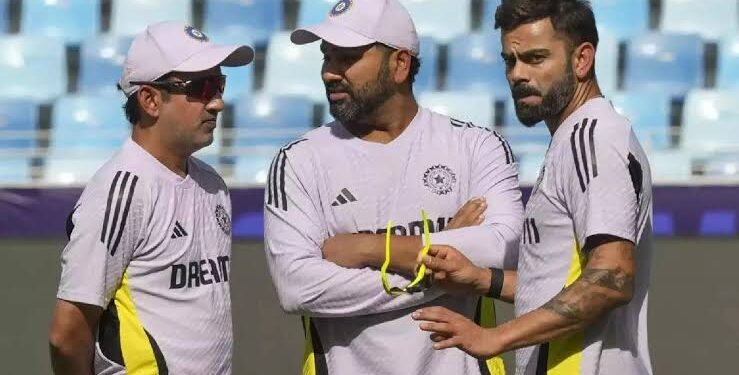The end of Gautam Gambhir’s first and last Test series as India’s coach was marred by chaos and controversy. Following India’s 1-3 Test series loss in Australia, where they surrendered the Border-Gavaskar Trophy after eight years, tensions erupted behind the scenes.
Leaked dressing room conversations and growing unrest prompted the Board of Control for Cricket in India (BCCI) to introduce a stringent 10-point protocol aimed at restoring discipline and accountability in the squad.
Among the newly imposed measures were restrictions on travel practices, personal baggage, and private staff. More significantly, the BCCI made domestic cricket participation mandatory, a move that saw stalwarts like Virat Kohli and Rohit Sharma return to represent Delhi and Mumbai, respectively—despite years away from the domestic circuit.
But the most controversial rule was the tight restrictions on family travel. Under the revised norms, players were barred from arriving or departing team hotels with family members. Families—including spouses and children—could only accompany cricketers during tours longer than 45 days, and even then, under tighter conditions.
This didn’t sit well with several senior players. During a squad announcement for the Champions Trophy, ODI captain Rohit Sharma was caught on a live mic expressing frustration:
“Ab to aur ek dedh ghanta baithna padega… ye sab cheez family wamily ka…”
(“Now I have to sit for another hour or so… to discuss all this family stuff. Everyone is talking to me about it…”)
The comments hinted at a deeper dissatisfaction brewing within the camp.
Meanwhile, Gautam Gambhir, who had remained silent amidst the criticism, finally responded. In a conversation with Cheteshwar Pujara on the Sony Sports Network ahead of the third India-England Test at Lord’s, Gambhir said:
“Families are important… but you’re here for a purpose. It’s not a holiday. You have a huge responsibility to make your country proud… If you’re truly committed to that cause, everything else becomes secondary.”
Virat Kohli, too, addressed the issue during the IPL while speaking at the RCB Innovation Lab Indian Sports Summit. He emphasized the emotional value of having loved ones nearby:
“It’s very grounding to come back to your family after intense moments. People who have no control over the situation are being dragged into it unfairly. That’s disappointing.”
The policy has triggered deep divides between players, support staff, and management, exposing growing concerns around player welfare and administrative control in Indian cricket. With the Champions Trophy and other major tournaments looming, the fallout could shape the team’s unity and performance in the months to come.





























